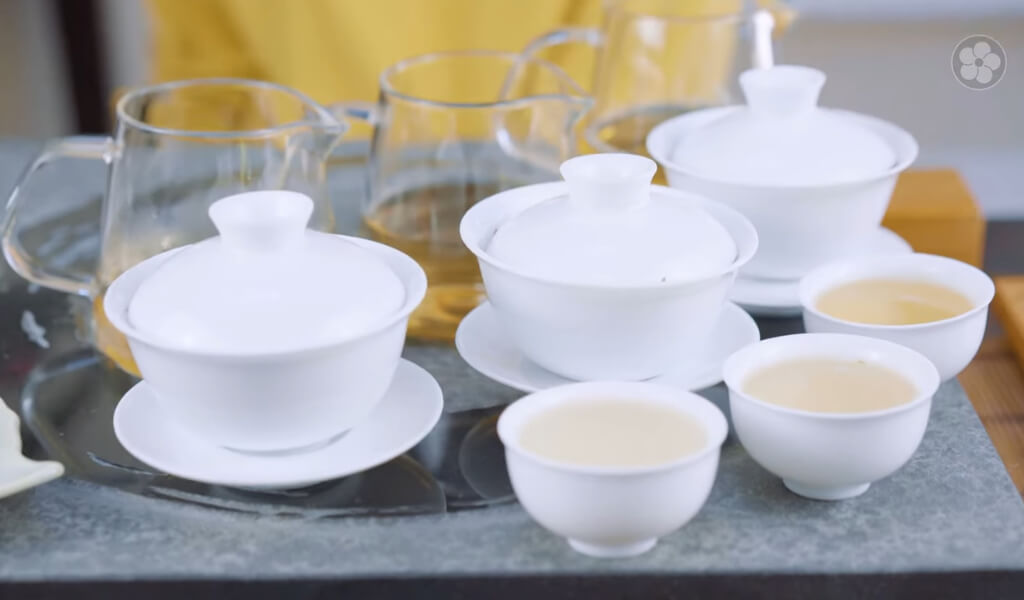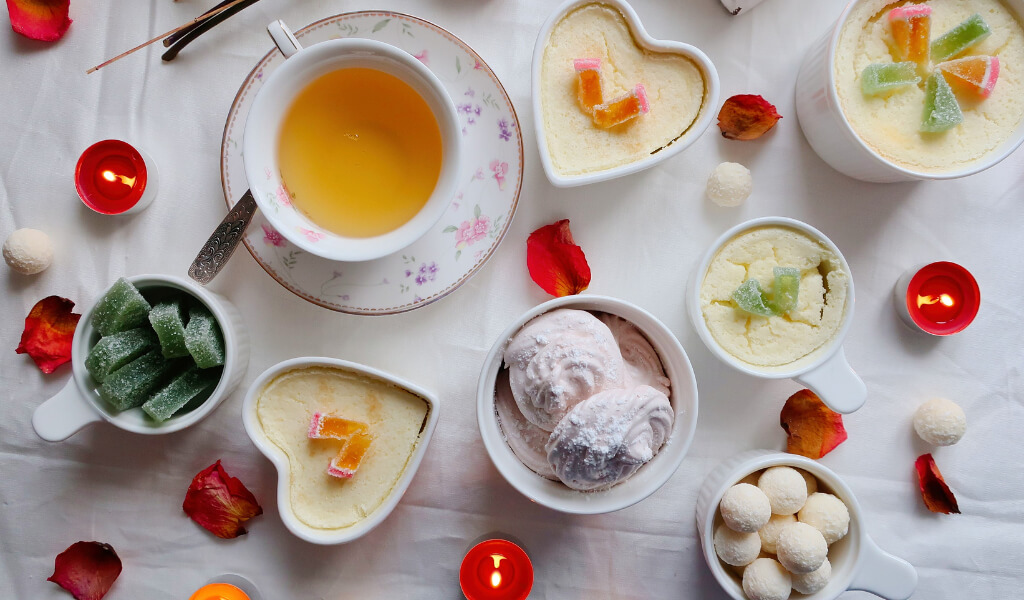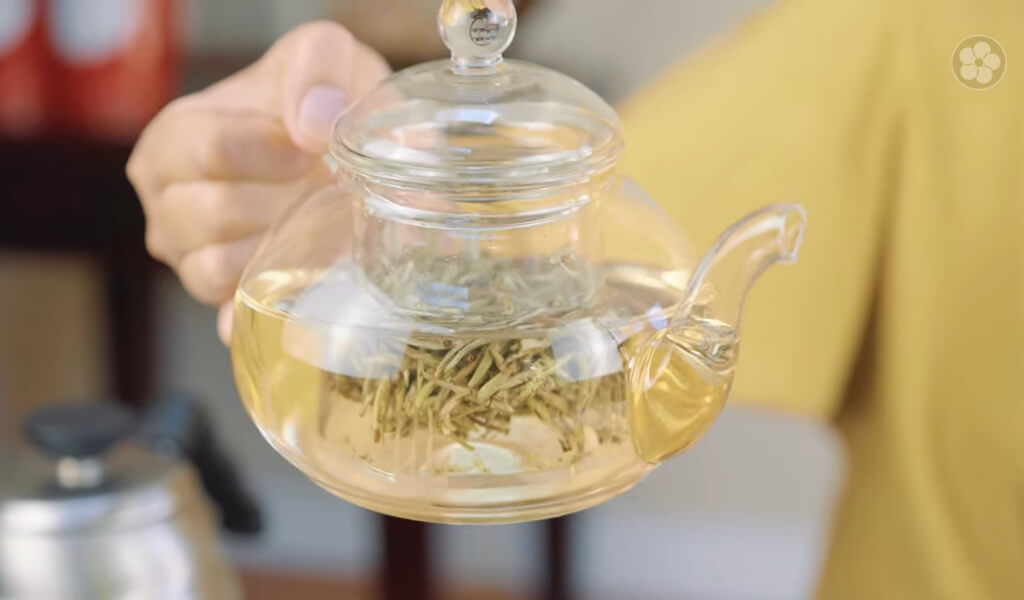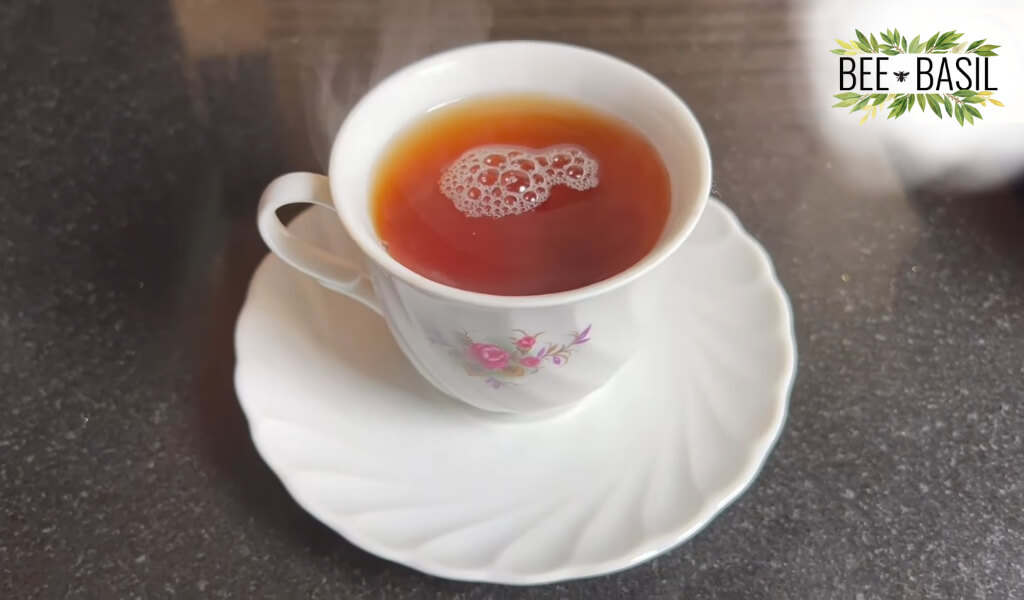As someone who’s spent many years savoring and studying different types of tea, I often ask, “What does White tea taste like?” It’s a question that reveals the mystery and allure of this exquisite beverage, a type that’s less well-known than its green and black counterparts.
I’ve found that the taste of White Tea can be a revelation, a delicate balance of subtle flavors that can soothe and stimulate your senses.
In this article, I’ll share with you my insights on the unique flavor profile of White Tea and, hopefully, inspire you to experience its understated charm yourself.
Quotes of tea with You
“Everything is better with tea,” she told him.”
– Leah Franqui, Mother Land
Does White Tea taste good?
White tea tastes not just good but exceptional! This white tea flavor stands apart from other teas due to its minimal processing, allowing the natural, delicate flavors of the tea leaves to shine through.
So, if you’re asking about the taste of white tea, think of a gentle symphony of flavors that soothes the senses while offering an enriching tea-drinking experience.
Now that we’ve established that White tea indeed tastes good, let’s delve deeper into what exactly White tea tastes like.
What Does White Tea Taste Like?
White tea offers a refreshing taste with sweet hints of Honey and a Subtle Vegetable flavor. Whether you choose a delicate Silver Needle or a robust White Peony, it is perfect for enjoying any time of the day.
The flavor can best be described as delicate and complex – it’s not overpowering, but rather a subtle melody of tastes that unfolds with each sip.
This subtle White tea flavor can vary depending on the specific variety and how it’s brewed. Yet, at its heart, the taste of White tea always offers a refreshing lightness that’s truly unique to this type of tea.
White tea varieties
| White Tea Variety | Flavor Profile | Purchase Location |
| Silver Needle | Delicate, subtly sweet, melon, floral | Local Grocery Store |
| White Peony | Floral, fruity, slightly nutty | Amazon |
| Long Life Eyebrow | Stronger, fruity, honey-like, earthy | Tea Fair |
Silver Needle (Bai Hao Yin Zhen)
Silver Needle is considered the most exquisite of White teas. When I found a packet at my local grocery store, I was thrilled to try it.
The White tea flavor of Silver Needle is delicate and subtly sweet, with a hint of melon and a soft, floral finish.
White Peony (Bai Mu Dan)
I was able to purchase some White Peony herbal tea bags from Amazon. This type of White tea has a fuller flavor compared to Silver Needle. This variety’s taste of white tea is characterized by its refreshing floral notes, fruitiness, and a slightly nutty finish.
Long Life Eyebrow (Shou Mei)
At a recent tea fair, I chanced upon Shou Mei, another variety of White tea. It has a more robust flavor profile than the other two. The white tea taste of Shou Mei is slightly stronger, with fruity and honey-like undertones and a hint of earthiness.
Understanding the taste of White tea is just the beginning; let’s explore the factors that can affect this delicate flavor.
Factors that Affect the taste of white tea
Quality of Tea Leaves
During my recent three-week experiment, I discovered that high-quality leaves often yield a more nuanced flavor profile.
They possess a delicate sweetness and a clean finish, often lacking in lower-grade teas. The difference in white tea flavors between high and low-quality leaves can be startling.
Brewing Methods
How you brew your white tea can greatly affect the taste. Over the past weeks, I’ve experimented with different brewing temperatures and steeping times, and each tweak resulted in a subtle change in the “white tea flavor”.
For instance, brewing loose leaf white tea leaves at a lower temperature for a long time can bring out its inherent sweetness while preserving its light, airy quality.
Water Quality
Water quality can often be overlooked, but it’s a critical factor influencing white tea’s taste. Through flavor exploration, I learned that pure, filtered water brings out the subtle notes of white tea, enhancing its enjoyment.
Age of the Tea
Over time, white tea develops a richer, deeper flavor.
As part of my recent tea-tasting journey, I had the opportunity to taste aged ones from famous white tea brands, and their flavor was distinctively richer and more robust than their fresher counterparts, adding another dimension to the white tea.
With the factors influencing the taste in mind, I’ll share some tips on how to make white tea flavor even better.
Make white tea flavour better
Step-by-step
Brewing white tea to extract its delicate flavors can seem like an art, but with some practice and guidance, you’ll master it in no time. Here’s how I prefer to brew my White tea for the best taste:
- Quality Water: Begin with filtered water. The purity of the water can make a difference in the “white tea taste”.
- Correct Temperature: Heat the water to around 80-85°C (176-185°F). White tea doesn’t require boiling water; too hot water can scorch the leaves and ruin its delicate flavor.
- Right Quantity: Use 2 teaspoons of white tea leaves for every 8 ounces of water.
- Steeping Time: Allow the tea to steep for about 4-5 minutes. Steeping time can influence the “white tea flavor”, with longer steeping times extracting more robust flavors.
Why Does My Tea Taste Like Water?
If you’re not experiencing any flavor and find that tea resembles plain hot water, it could be because you need to use more tea leaves for the water you’re using. To ensure a flavorful cup of tea, you should verify the ratio of tea to water.
Ensuring the correct steeping time and using the right amount of tea can help enhance the flavor.
Here are a few tips to prevent your White tea from tasting like water:
| Don’t skimp on tea leaves | Using too few can produce a weak white tea flavor. Make sure to use the recommended amount. |
| Avoid over-dilution | If you add too much water to the amount of tea you’re using, the tea will naturally taste diluted. |
| Check the steeping time | Underbrewing can lead to a lack of flavor. Make sure to steep your White tea for the recommended time to extract its flavors fully. |
Remember, the White tea taste is naturally subtle, but following these steps and tips should help you achieve a flavorful and enjoyable cup of white tea.
Now that we’ve covered how to enhance the flavor of White tea let’s tackle some frequently asked questions to further your tea knowledge.
In conclusion
The answer to “What does white tea taste like?” is not simple.
A number of variables, including the quality of the leaves, the brewing process, and the age of the tea, influence the delicate balance of gentle sweetness, floral notes, and a faint fruitiness in the flavor.
I hope this overview has made it easier for you to comprehend and value the many flavors of White tea. Thank you for reading, and please feel free to comment below with any white tea stories you may have.
Enjoy your tea journey! Thanks from spiriteadrinks.com
FAQs
Does white tea taste like regular tea?
White tea has a unique, delicate flavor sets it apart from regular teas. Its taste is subtly sweet with floral undertones, different from the stronger flavors of black or green tea.
Do you put milk with white tea?
Typically, milk isn’t added to white tea. White tea’s delicate, nuanced flavors are best appreciated without any additions, allowing you to experience the tea’s natural subtleties.
Is white tea supposed to be sweet or bitter?
Is white tea caffeinated sweet, or bitter is a popular question. White tea is typically sweet and delicate rather than bitter. Oversleeping can cause some bitterness but brew correctly, and white tea offers a subtly sweet, soothing flavor profile.
Can white tea taste stronger if brewed longer?
Yes, brewing white tea longer can enhance its flavor, but overstepping can make it taste bitter. It’s about finding the right balance.
Is it normal for the taste of white tea to change over time?
Yes, the taste of white tea can evolve, especially if it’s stored properly. Aging can often enrich the flavor of white tea, making it deeper and more complex.
Is white tea naturally sweet?
Yes, white tea is naturally sweet. It has a gentle, subtle sweetness that’s part of its charm. This sweetness is not overpowering but rather a delicate note that complements the overall flavor profile of the tea.
Do I add milk to white tea?
Generally, it’s not recommended to add milk to white tea. White tea’s delicate flavor and subtle sweetness are best appreciated. Adding milk can mask these nuances and alter the taste significantly.
Does white tea smell good?
White tea has a wonderfully inviting aroma. It’s often described as fresh, floral, and slightly sweet. The aroma enhances the tea-drinking experience, making each sip even more enjoyable.
Is jasmine tea the same as white tea?
No, jasmine tea and white tea are not the same. Jasmine tea is typically green tea scented with jasmine flowers, while white tea is made from young or minimally processed leaves.
But, what is white tea good for? And is it the same as jasmine in health tea benefits?
Yes, each has a distinct flavor profile to help with lowering blood pressure, enhancing circulation, and reducing the risk of heart disease.
Is white tea from Camellia sinensis?
Yes, white tea is indeed made from the Camellia sinensis plant. It is derived from this plant’s young leaves and buds, and its minimal processing helps retain a high level of antioxidants, contributing to its subtle and delicate flavor.
I’m Shanna, creator of Spiritea Drinks. I’m all about teaching people to grow their own food, tea, cook what they harvest, and eat with the seasons.





